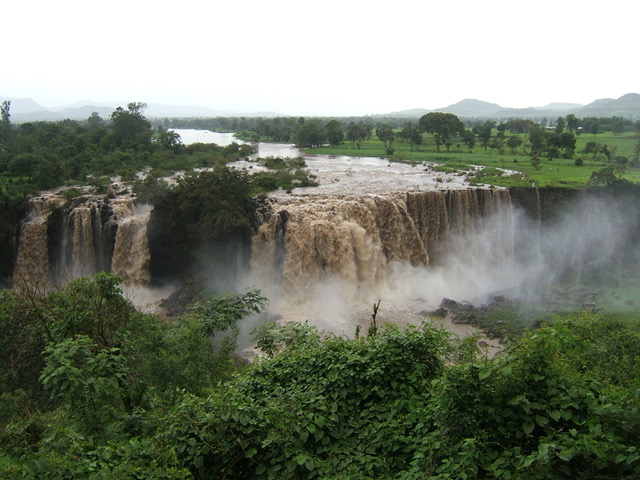Climate Change in the Breadbasket of the Roman Empire
23.01.2020 H14:30
24.01.2020 H09:30
Introduction
Programme
Programme
23.01.2020 H14:30
24.01.2020 H09:30
Reconstructing Nile Floods for the Roman Period
An interdisciplinary conference organised by Sabine R. Huebner, Institute of Ancient History, University of Basel in collaboration with Istituto Svizzero, Roma.
Registration: The entry is free. Please register with Sabine R. Huebner (sabine.huebner@unibas.ch)
The importance of the Nile for Egypt’s agriculture, society, culture and political history can hardly be overrated. Since rainfall is almost non-existent in Middle and Upper Egypt, any changes in the annual Nile flood must have triggered an immediate response in Egyptian society, economy and politics. Moreover, the Nile river and its fertile flood plains did not only play a crucial role in the development of Egyptian civilization, but they also constituted one of the main pillars for the economic stability of the Roman Empire and helped to sustain its imperial expansion. The grain supply of the city of Rome and the Roman army was closely tied to the annual cycle of the Egyptian river. Reconstructing annual changes in the quality of the flood of the Nile is thus important not only for studying the immediately adjacent Egyptian society, but it also has implications of a larger scale, for a series of below-average Nile floods must have had serious political and socio-economic consequences for the entire Roman Empire.
Until now, ancient historians studying the society and economy of Roman Egypt have hardly paid any attention to the flood quality in any given year. Moreover, our literary, epigraphic and papyrological sources offer only sparse evidence for exceptional years: the earliest consecutive records of Nile flood levels start in the 7th century CE, recorded by the Islamic Nilometer in Cairo.
With new advances in the field of paleoclimatology, which offers an entirely new array of sources to ancient historians, there is hope that we will be able to reconstruct Nile flood data for the Graeco-Roman period, and develop collaborative methods of assessing the impact of climatic variability or change on ancient societies without oversimplifying their causal connections. At this conference we aim to discuss both human and natural proxy data in order to reconstruct summer Nile flooding during the Roman period from 30 BCE to roughly 700 CE.

23 January 2020 – Day 1
Session 1: The Nile over the longue durée (chair: Markus Stoffel, Geneva)
H14:30 Welcome and Introduction
H15:00 Henry F. Lamb (Aberystwyth)
Lake Tana and the Blue Nile: the last 150,000 years
H15:30 Cecile Blanchet (Potsdam)
Flood dynamics during the last Saharan Humid Period: clues from a laminated record from the Nile deep-sea fan
H16:00 Elena Xoplaki (Giessen)
Precipitation variability and changes in monsoonal Africa – Associations with northern Egyptian hydroclimate in new comprehensive earth system models prior to CE 700
H16:30 Break
H17:00 Judith Bunbury (Cambridge)
Evidence for Graeco-Roman Climate and environment; tying climate records to observations from the field
H17:30 Response by Irene Soto Marín (Basel) and General Discussion
24 January 2020 – Day 2
Session 2: Historical case studies of Nile flood extremes during Roman times (chair: Marco Maiuro, Rome)
H09:30 Anna Arpaia (Pavia)
The Nile breaks the banks: unfavorable floods in some documents from the 1st century BC Herakleopolite
H10:00 Katherine Blouin (Toronto)
Good Flood, Bad Flood: Environmental entanglements in the Roman Northeastern Delta
H10:30 Sabine R. Huebner (Basel)
Did shifts in the African Monsoon lead to the decline of the Roman Fayum from the third century CE?
H11:00 Break
H11:30 Christophe Corona (Clermont)
Multi-proxy approach provides insights into climate variability in Central Italy at the End of the Roman Empire: Insights of Work in the Nile river
H12:00 Response by Elio Lo Cascio (Rome) and General Discussion
H12:30 Break
Session 3: Natural proxies for reconstructing Nile floods during the Roman period (chair: Sabine R. Huebner, Basel)
H13:30 Matthieu Ghilardi (Aix-Marseille)
Nile River evolution during Graeco-Roman times in Egypt: what we learn from sediment archives?
H14:00 Markus Stoffel (Geneva)
Tracking changes in Nile floods with tree rings: Possibilities and limitations
H14:30 Break
H15:00 Kevin Anchukaitis (Tucson)
Inference from the periphery: large-scale climate variability and Nile floods during the Common Era
H15:30 Response by Federico de Romanis (Rome) and General Discussion
"Blue Nile Falls" by Justin Clements, 28.08.2005, shared on Flickr (CC BY 2.0)